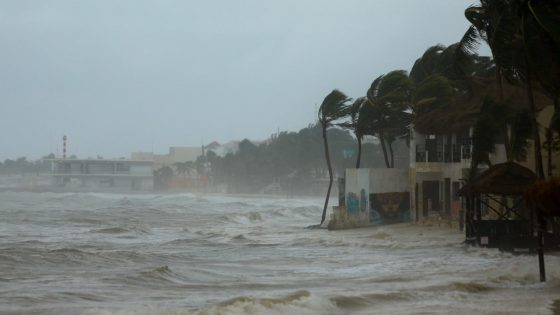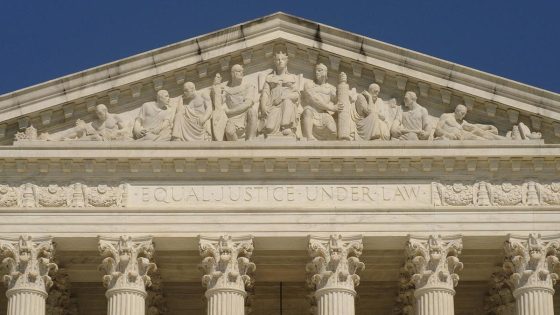Although congressional Republicans have been slamming President Joe Biden over his decision to withhold certain bomb shipments to Israel, such a move is not unprecedented, as they’ve claimed.
Previous presidents, including Republican ones, have withheld aid to send a clear message to Israel and other allies, a foreign policy expert told ABC News.
However, given Biden’s dispute with Israeli Prime Minister Netanyahu over a planned major invasion of Rafah and the risk of civilian casualties — combined with political unrest in the U.S. – his move carries a heavier risk, said Michael Sullivan, an adjunct professor at Georgetown University’s School of Foreign Service.
“This is all part of security cooperation,” Sullivan said. “At the end of the day, the president has the right to use every tool he can in his toolbox.”
In this April 12, 2024, file photo, President Joe Biden speaks in Washington, D.C.
Alex Brandon/AP, FILE
Sullivan, a retired U.S. Army colonel who was involved with U.S. arms transfers, noted that Presidents Ronald Reagan and George H.W. Bush both halted key aid to Israel during their terms over concerns about Israeli actions.
In the summer of 1981, President Reagan held back the delivery of U.S. fighter jets to Israel for two months after it bombed a nuclear reactor in Iraq.
In July 1982, he halted a shipment of cluster shells to Israel over how Israel used the weapons during its invasion of Lebanon. American officials at the time were reviewing if the use of the weapons violated an agreement between the U.S. and Israel.

This handout picture released by the Israeli army on May 10, 2024, reportedly shows Israeli soldiers standing atop a main battle tank as part of the Givati Brigade operating in eastern Rafah in the southern Gaza Strip.
Israeli Army Handout via AFP via Getty Images
In March 1992, President Bush delayed a $10 billion loan to Israel over concerns about Israel going forward with settlements in the West Bank.
Sullivan said that there wasn’t much political criticism of Reagan or Bush’s aid pauses both domestically and internationally because the conflict in the Middle East was not at the front and center of foreign policy as it is today.
“Even when you had that rift there was still a clear understanding of U.S.-Israeli foreign policy and everybody moved on,” he said.
Numerous factors involving the current conflict, including the increased political polarization in Washington, have created a different environment for the president creating more scrutiny, according to Sullivan.
The Biden administration told Israel last week that it would withhold the shipment of 3,500 bombs due to its concerns over an offensive into Rafah and the threat that posed to more than one million Palestinian civilians seeking refuge there.
Biden told CNN Wednesday that Israel has used those American weapons to kill civilians in its war on Hamas in Gaza.
“I’m not supplying the weapons that have been used historically to deal with Rafah, to deal with the cities,” Biden said.

Sen. Lindsey Graham, joined by Sen. Ted Cruz and other Senate Republicans, criticizes President Joe Biden for his warning to Israel that the U.S. will pause more offensive military assistance if it goes through with an all-out assault on Rafah, during a news conference at the Capitol in Washington, D.C., on May 9, 2024.
J. Scott Applewhite/AP
The president and other White House officials have stressed their commitment to support Israel.
“And my commitment to the safety of the Jewish people, the security of Israel, and its right to exist as an independent Jewish state is ironclad, even when we disagree,” Biden said Tuesday in the U.S. Holocaust Museum’s Days of Remembrance speech.
Several Senate Republicans, including Minority Leader Mitch McConnell and Lindsey Graham, have blasted Biden’s move.
Graham said Israel is fighting a “just war” and making efforts to warn civilians before attacks.
“I think Israel is in a fight for its life that the reason so many Palestinians have been killed is because Hamas has command centers under hospitals. Don’t reward their behavior,” the South Carolina senator said at a news conference along with nine GOP colleagues.
Sullivan said the Republicans’ objections not only ignored the precedent set by previous administrations when it comes to U.S-Israel policy, but also the fundamental understanding of the powers of the president when it comes to foreign relations.
“What I really think is that it’s the politics of it, and everyone is looking for an advantage in an election year, but at the end of the day, President Biden is the commander-in-chief and he has the legal right to pause a military shipment,” he said.
McConnell and other Republicans also accused Biden of caving into the pressure from pro-Palestinian protesters from around the country who have called for a cease-fire and colleges and universities to divest from Israel because of civilian deaths.
Sullivan said it’s unclear how much the protests played into Biden’s decision and it was more likely driven by the escalating concerns specifically about Rafah.
“We were getting closer to a cease-fire, and we have repeatedly urged Israel not to go into Rafah because of the humanitarian crisis. At this point it is, timing-wise, the right time to send that message,” he said.
Sullivan emphasized that Biden’s move did not end military aid to Israel and the nation still has enough firepower to defend itself or launch an attack on Rafah.
White House National Security Council spokesman John Kirby did not have a timeline on how long the hold on the shipment will last, stating Thursday he believed “a lot is going to depend on what we see in Israel do in Rafah and in their planning for Rafah.”
Sullivan said it is hard to predict the short-term outcome of Biden’s action given the volatility of the situation.
“[Biden] and his administration has to know there will be costs to that decision whether it’s politically or militarily,” he said.

Palestinians inspect the site of a building that was hit by Israeli bombardment in Rafah in the southern Gaza Strip, on May 9, 2024.
APAImages via Shutterstock
Netanyahu said in a statement that Israeli forces are still committed to a Rafah invasion.
However, Sullivan said that the U.S. weapons halt will still have an influence on Israeli operations and predicted other such pauses are on the table.
“Right now, Benjamin Netanyahu has every right to disagree and do what he wants to do, but now he has the understanding that if the U.S. doesn’t agree, there are sticks as well as carrots,” he said.
ABC News’ Allison Pecorin and Conor Finnegan contributed to this report.
Source Agencies




